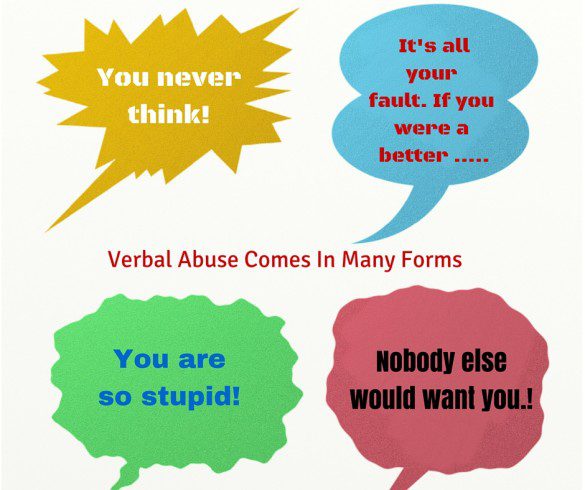Abuse is certainly not new nor evolving but our recognition of what abuse is, hopefully is improving. Many years ago it was considered acceptable to hit women, children and pets. It took a long time to get to the point where we as a society realized that we needed to stop the physical abuse. Just because you can get away with it – doesn’t make it okay.
We are still working on recognizing Emotional, Verbal and Mental Abuse. Obviously, it is easier to see that someone has been physically harmed – there’s the visual cues – bruises, cuts, and other injuries.
But how do you see that someone has been emotionally abused? How do you know if you are being emotionally abused? And is it really abuse?
Some red flags of emotional abuse are name-calling, sarcastic put-downs, isolation from friends and family, financial control, contempt, snide remarks and mean comments followed by the statement “I was just joking.”
It can also include making remarks casting doubt on your ability to make choices or your value as a human being, and veiled or obvious threats of harm to you or themselves if you don’t do what they want. All of these are done to make you feel “less than” and give control to the abuser.
Sometimes, to recognize if they are abusive remarks you have to witness the delivery, to “be there.” This can make the abused feel even more isolated, as they feel that repeating just the words does not truly reveal the intent of the abuser.
The abused may even feel that others will not believe they are being threatened, emotionally abused or manipulated. This can make the abused feel hopeless and powerless, even more isolating and shaming.
Often, in all types of abuse, one of the additional effects is that the abused person may be coerced into believing that it is their fault. Another danger is that Emotional, Verbal and Mental Abuse frequently are a precursor to physical abuse, escalating the longer it goes on.
Each time the line is crossed to abuse someone, the easier it is to cross that line again and go farther. So emotional abuse IS abuse and it does matter. Name calling does break us. It can break your self-respect, your courage and your hope.
If you think you may be emotionally abused, please reach out. Reach out to a safe person who values you, call a domestic violence group/hotline, or see a therapist who is familiar with emotional abuse. If someone doesn’t “get you and your situation” reach out to someone else, till you find someone who does. Even professionals sometimes don’t get it – so find someone who does.
Not everyone gets it, but you are worth the search. And it’s time to start taking care of yourself. Emotional Abuse, Verbal and Mental Abuse DO HURT!

Leave a Reply
You must be logged in to post a comment.